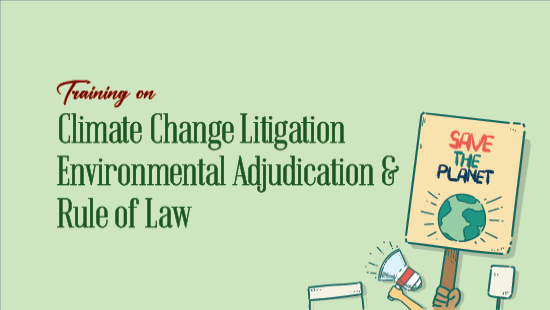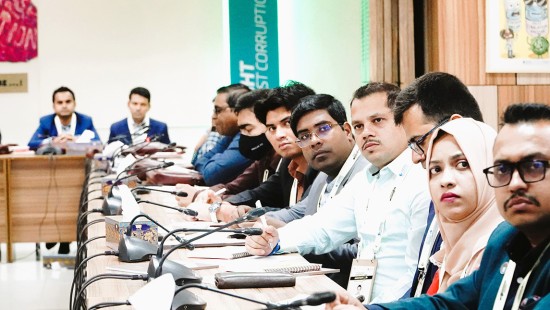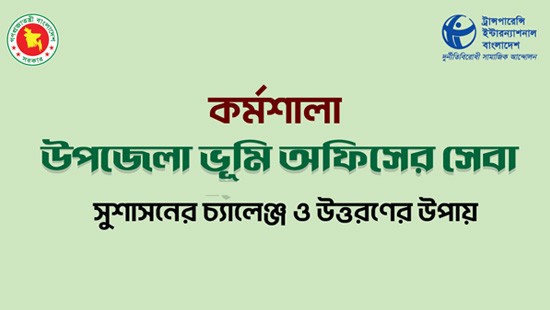Published: 25 September 2025
Transparency International Bangladesh (TIB) and the Anti-Corruption Commission (ACC) have signed a new five-year Memorandum of Understanding (MoU) to strengthen collaboration in preventing and combating corruption in Bangladesh.
Signed at ACC headquarters in Dhaka on 24 September 2025, this agreement will be effective from October 1, 2025, to September 30, 2030, representing the longest-term partnership between the two institutions. The ceremony was attended by ACC Chairman Dr. Mohammad Abdul Momen, Md. Aktar Hossain, Director General (Prevention); Commissioner Brigadier General (Retd.) Hafiz Ahsan Farid, and TIB Executive Director Dr. Iftekharuzzaman, along with senior officials from both organizations.
With this MoU, TIB and ACC restate their commitment to advancing transparency, accountability, and public awareness against corruption in Bangladesh. The collaboration is expected to create greater impact in building a corruption free New Bangladesh, with an enabling environment for good governance and integrity across the institutions.
The renewed MoU outlines several priority areas of joint action, including raising public awareness and mobilization against corruption, promoting institutional integrity and procedural excellence, research, training, and knowledge-sharing initiatives, technical support and advisory collaboration and strengthening local-level volunteers of TIB and ACC. Under the tenure of this MoU, TIB will provide training to the selective ACC officials especially who are engaging with the investigation process on specialized issues like- Digital Forensic and Forensic Analysis, Forensic Accounting, Stolen Asset Recovery (StAR), Mutual Legal Assistance Request (MLAR) and many other. Beside, ACC and TIB will jointly initiate at least 6 public Public Hearing every year under this MoU.
Md. Aktar Hossain, Director General (Prevention) ACC, stated that "This MoU marks a continuation of our collaboration. Together with TIB, we will intensify efforts to build a more transparent and accountable system." ACC Secretary Khaled Rahim mentioned that, "As a complement to the independent ACC, TIB has always been with us. This time, to make our relationship longer, we are signing this longest-ever five-year MoU."
Dr. Iftekharuzzaman, Executive Director, TIB emphasized the partnership's dual nature by stating that, "TIB is not only a watchdog of ACC but also a partner in promoting good governance. Through this MoU, TIB will continue to provide advisory support, identify gaps, and contribute to strengthening institutional capacity of ACC."
ACC Chairman Dr. Mohammad Abdul Momen highlighted the significance of this renewal, "We are signing this MoU when our formal partnership has completed a decade. TIB has always acted as a positive partner for us. We believe TIB complements ACC and ACC also complements TIB." Speaking about the current country context, Dr. Momen noted, "There is currently no political government, so political pressure is not as effective. This is an opportunity to free the country from corruption." He requested TIB to conduct research on public perceptions about ACC and the judiciary system, similar to their Corruption Perception Index work.
This five-year partnership represents both organizations' commitment to sustained anti-corruption efforts and their confidence in working together toward the shared vision of a transparent, accountable New Bangladesh.
It is to mention here that, the TIB-ACC collaboration focuses on prevention over enforcement, capacity building, and public awareness. With 47 reform proposals under consideration for ACC and growing public expectations, this partnership aims to strengthen institutional capabilities while maintaining independence and effectiveness in anti-corruption efforts.
Nevertheless, this renewed partnership comes at a crucial moment as Bangladesh approaches its upcoming national election, when public demand for accountability and transparency has reached new heights. The collaboration is expected to create greater impact in building a corruption-free Bangladesh, with an enabling environment for good governance and integrity across institutions.













